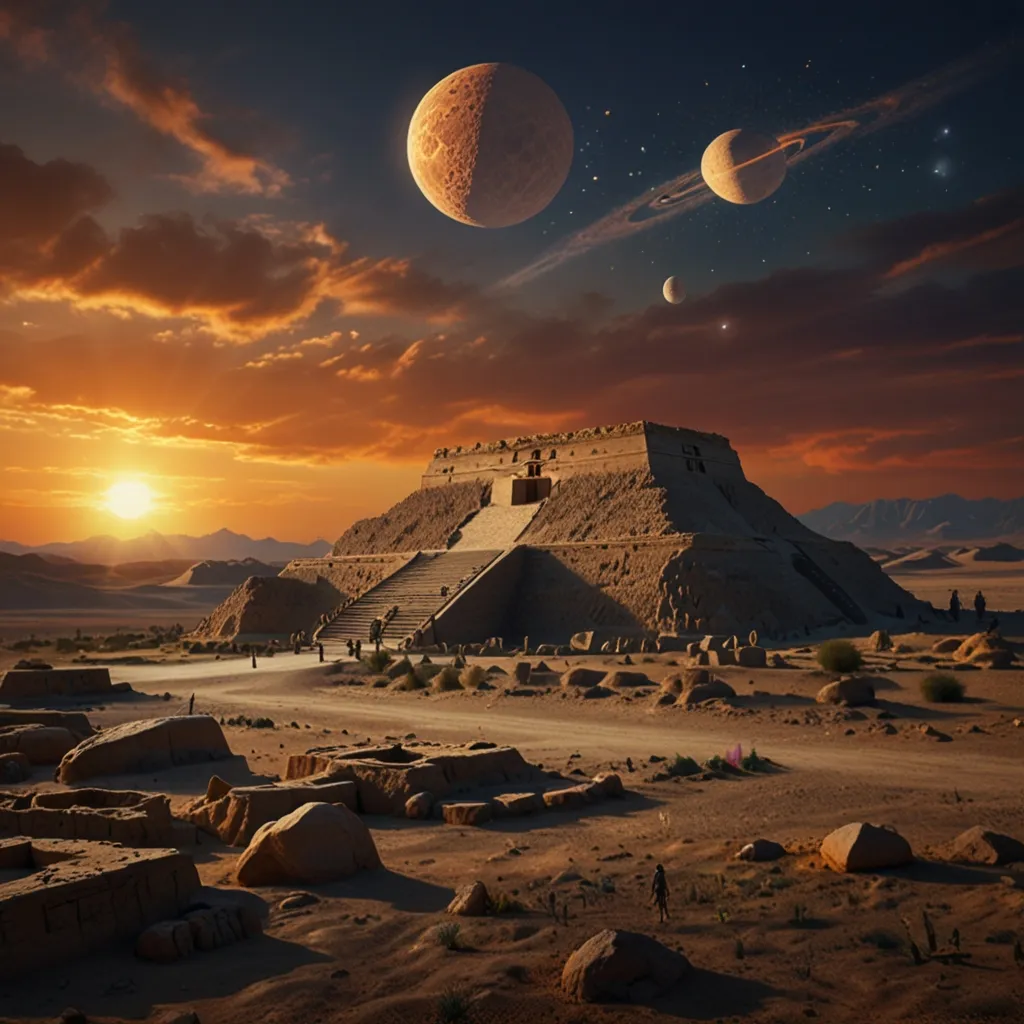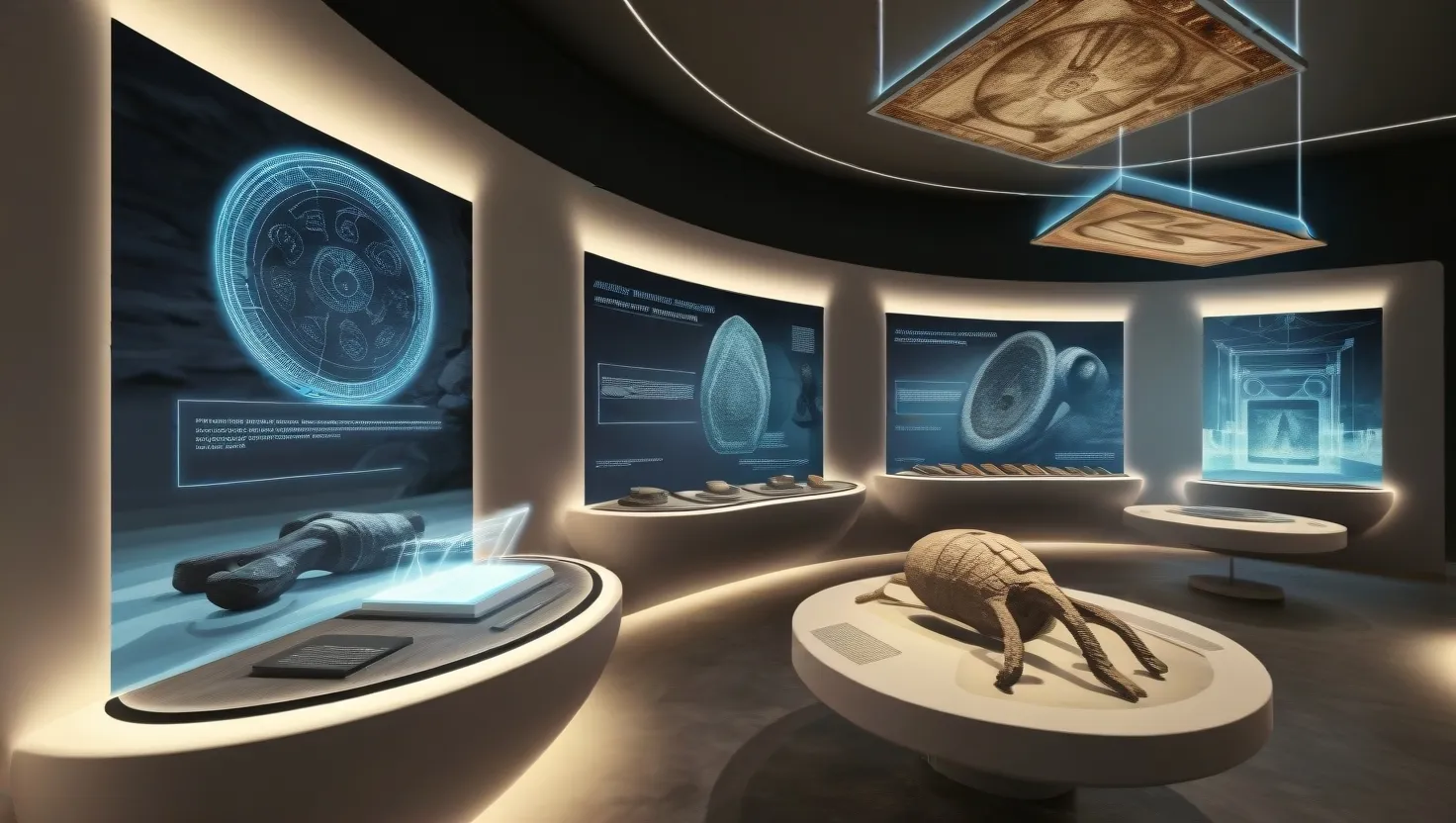In the late 1920s, during some rigorous digging in Southeast Iraq, archaeologist Leonard Woolley stumbled upon something rather wild at the ancient city of Ur – the remains of Queen Puabi. But this wasn’t just any regular discovery. Queen Puabi had an unusually large skull, similar to that of some Egyptian pharaohs and mummies found in Peru. For those who dig into ancient astronaut theories, this funky skull was practically solid gold – a piece of evidence hinting at humanity’s possible extraterrestrial origins.
Queen Puabi wasn’t just some random royal. She was a first dynasty queen and/or priestess, chilling pretty close to the reign of the Anunnaki, supposedly the OG extraterrestrial beings. Some folks believe that her unique skull might be the smoking gun, suggesting that the Anunnaki were real and possibly interbred with humans. They look at her head shape and think, “Yep, definitely part extraterrestrial.”
Now, if we play along with the idea that these cone-headed skulls found in Mesopotamia and other places are evidence of the Anunnaki’s hand in our history, then what about those ancient stories of beings descending from the heavens? Could they be true? Think about it – ancient texts worldwide talk about heavenly beings. From angels to the star people of the Anasazi, cultures everywhere have legends about beings from the skies. Samesies, right? It’s kind of wild to think there might be one race of beings, like the Anunnaki, spreading their celestial influence across different cultures.
So, Mesopotamia. This ancient region located between the Tigris and Euphrates rivers in modern-day Iraq hosted some key players in early human history. Sumer was the oldest of four main kingdoms, followed by Akad (courtesy of Sargon I), Babylonia, and Assyria. Despite changes in language and people, the culture established by the Sumerians remained a solid influence.
The Sumerians were kind of a big deal. Crawling out of the Stone Age around 3,000 to 4,000 BC, they brought writing into the mix with their cuneiform tablets, while impressing wedge-shaped signs on wet clay tablets. This writing system was tricky to decipher until a breakthrough in 1843 when a French scientist uncovered thousands of tablets in an Assyrian Palace. These finds were game-changers, providing tangible proof of a once-believed mythical kingdom.
Among the most fascinating finds was the ancient Sumerian capital, Ur. And there they found Queen Puabi with her golden tomb and loads of cuneiform tablets. The discovery of this legendary capital city wasn’t just some fairy tale; it was historical fact. Talk about a mind-blowing confirmation.
Sumerians have a legit claim to inventing a staggering number of firsts in modern society – agriculture, science, medicine, math, laws, courts, schools, you name it. And this was done 6,000 years ago. Respect.
Now, ER fell around 2,000 years BC, taken down by their neighbors, the Elamites. But some researchers believe that the cuneiform texts reveal something much more – mentions of divine beings called the Anunnaki. According to the Sumerians, these princely offspring of God descended from the sky, adding a whole new spin to their polytheistic belief system, where gods both male and female ruled with personalities much like humans.
Described in the texts, the Anunnaki weren’t your everyday deities. They were humanoid, spirit beings with the ability to morph into human form. They came to Earth for special missions, sometimes to mine materials, and brought serious wisdom with them. They were powerful, knowledgeable, and had a knack for longevity.
Could these gods described in cuneiform texts be real? And if yes, were they extraterrestrial beings? That’s what ancient astronaut theorists believe, giving a solid nod with a resounding yes.
Fast forward to Mars, August 6th, 2012 – Curiosity Rover lands on Martian soil, looking for signs of life’s essentials like water. The curiosity isn’t just about the possibility of Martian life. Some theorists suggest that it might uncover traces of the Anunnaki civilization. Zechariah Sitchin theorized that the Anunnaki hailed from Nibiru, making Mars a sort of pitstop before reaching Earth. If correct, could future missions reveal pyramids or other massive structures on Mars? It would be an Earth-shaking discovery, hinting at our cosmic cousins who once may have lived there.
Zecharia Sitchin dived deep into Sumerian texts, which mention Nibiru’s elliptical orbit around the sun, bringing it close to Earth every 3,450 years. The next visit? Allegedly around the year 2,900. In his book of prophecies, there is talk of the Anunnaki’s triumphant return. Picture this, some of them might be ecstatic to see our progress, while others could be pretty miffed, thinking we’ve perhaps gone too far. The reunion could bring new technological and cultural revolutions due to the Anunnaki infusing fresh wisdom into our modern society.
Stories about crossing realms, such as the Egyptian Duat or the Sumerian Nibiru, imply that contact with the Anunnaki wasn’t just geographical but also mystical. The Anunnaki weren’t simply mythological beings; they were believed to bring technological advancements and stimulate human evolution every time they interacted with us.
Given all these recurring droves of knowledge and tech each time they “drop by,” it’s no wonder why some people are excited about their potential return. New tech, wisdom, and ideas enriching human consciousness could be on the horizon again.
There’s a common thread in these stories of extraterrestrial visits - most cultures harbor the prophecy of a return. The bottom line? Accept that we’re not alone in the universe. They were here in the past, will likely be back in the future, and, honestly—it’s okay. The notion might be bizarre, but if history is any indication, their return might spell out another major leap for human society. Get ready for one wild ride.






